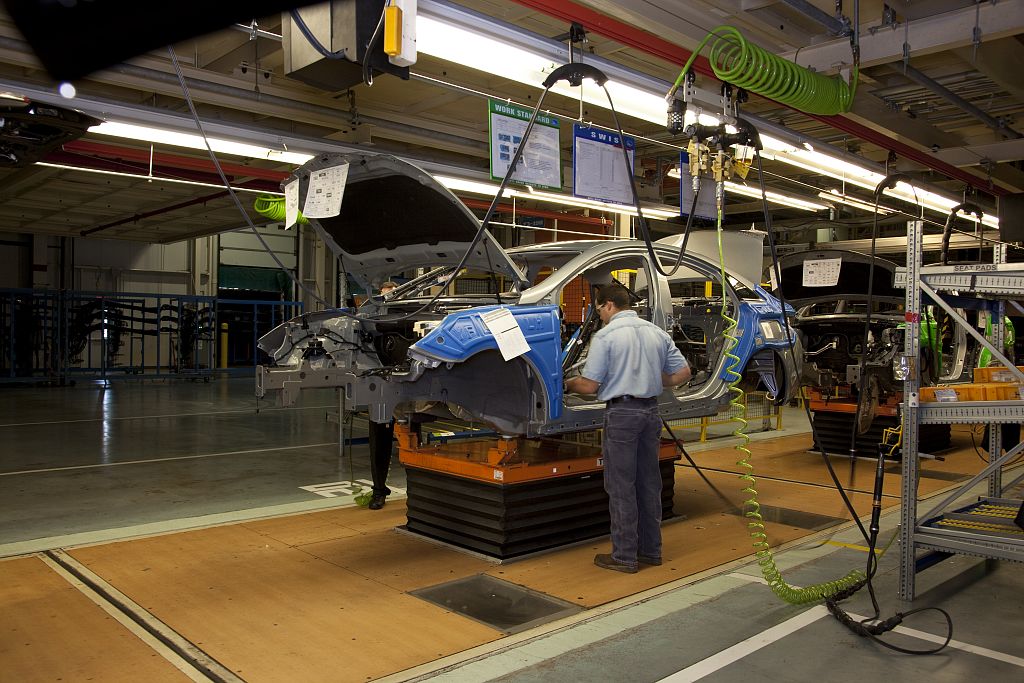Gary Silverman of the Financial Times penned a great piece in February about Alabama encountering the false promise of a manufacturing revival, with the jobs, uncoupled from union protections and divorced from good policy, often proving dangerous, contracted and low-paying.
These are the scraps really being offered with Trump’s vow to return America to factory-town glory. Individuals face fierce competition for substandard positions as they dwindle before the progress of automation, while poorer states offer such aggressive incentives to attract plants that their tax bases aren’t much enhanced in the bargain.
In Bloomberg Businessweek, Peter Waldman treads on the same territory with “Inside Alabama’s Auto Jobs Boom,” which makes it clear the “New Detroits” dotting the Southern landscape aren’t much like the classic model. An excerpt:
Alabama has been trying on the nickname “New Detroit.” Its burgeoning auto parts industry employs 26,000 workers, who last year earned $1.3 billion in wages. Georgia and Mississippi have similar, though smaller, auto parts sectors. This factory growth, after the long, painful demise of the region’s textile industry, would seem to be just the kind of manufacturing renaissance President Donald Trump and his supporters are looking for.
Except that it also epitomizes the global economy’s race to the bottom. Parts suppliers in the American South compete for low-margin orders against suppliers in Mexico and Asia. They promise delivery schedules they can’t possibly meet and face ruinous penalties if they fall short. Employees work ungodly hours, six or seven days a week, for months on end. Pay is low, turnover is high, training is scant, and safety is an afterthought, usually after someone is badly hurt. Many of the same woes that typify work conditions at contract manufacturers across Asia now bedevil parts plants in the South.
“The supply chain isn’t going just to Bangladesh. It’s going to Alabama and Georgia,” says David Michaels, who ran OSHA for the last seven years of the Obama administration. Safety at the Southern car factories themselves is generally good, he says. The situation is much worse at parts suppliers, where workers earn about 70¢ for every dollar earned by auto parts workers in Michigan, according to the Bureau of Labor Statistics. (Many plants in the North are unionized; only a few are in the South.)
Cordney Crutcher has known both environments. In 2013 he lost his left pinkie while operating a metal press at Matsu Alabama, a parts maker in Huntsville owned by Matcor-Matsu Group Inc. of Brampton, Ont. Crutcher was leaving work for the day when a supervisor summoned him to replace a slower worker on the line, because the plant had fallen 40 parts behind schedule for a shipment to Honda Motor Co. He’d already worked 12 hours, Crutcher says, and wanted to go home, “but he said they really needed me.” He was put on a press that had been acting up all day. It worked fine until he was 10 parts away from finishing, and then a cast-iron hole puncher failed to deploy. Crutcher didn’t realize it. Suddenly the puncher fired and snapped on his finger. “I saw my meat sticking out of the bottom of my glove,” he says.
Now Crutcher, 42, commutes an hour to the General Motors Co. assembly plant in Spring Hill, Tenn., where he’s a member of United Auto Workers. “They teach you the right way,” he says. “They don’t throw you to the wolves.” His pay rose from $12 an hour at Matsu to $18.21 at GM.•

